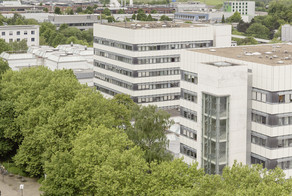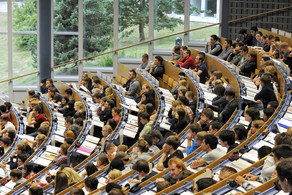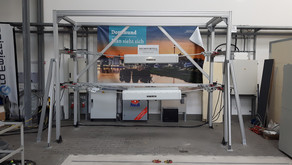Pre-conference Workshop at the IFAC World Congress 2023
Data-driven Predictive Control: Whence and Whither?
Date: Sunday, 09 July 2023
Scope: Data-driven methods have been in use for model order reduction and control for decades. Likewise, data-driven techniques for feedback design are common in adaptive and model predictive control. The unifying idea is to use data to fit or to improve a model. With the ever increasing availability of both data and computing resources as well as with the recent trend towards the inclusion of machine learning, data-driven methods have gained new interest and application fields in systems and control. In contrast to the aforementioned, more classic approaches, the recently proposed techniques are often entirely data-driven and, thus, easily applicable based on measurements without any prior knowledge.
This workshop brings together experts from the fields of control, data science, and machine learning combining seemingly classical methods with recently developed, data-driven methodologies. Thereby, we aim at understanding underlying patterns and theoretical foundations based on the current state of research and in view of future applications.
Program: The workshop consists of four parts:
- Willems' fundamental lemma
- Kernel-based methods and Koopman
- Reinforcement learning
- Gaussian processes
- Panel discussion
To gain access to the workshop slides, please click here. The password for the slides will be shared exclusively during the workshop session.
Speakers and Abstracts:

Title: Data-enabled Predictive Control: regularization and robustness
Bio: Jeremy Coulson is an Assistant Professor in the Department of Electrical and Computer Engineering at the University of Wisconsin-Madison. He received his PhD from the Automatic Control Laboratory at ETH Zurich in 2022. He received his MASc in Mathematics & Engineering in 2017 and his BSc.Eng degree in Mechanical Engineering & Applied Mathematics in 2015, both from Queen’s University. His research interests lie in the field of systems and control. In particular, he is interested in data-driven control and learning with application to robotics.
Title: Data-Driven Control of Stochastic Linear Systems? - The Lemma of Willems' et al. Through the Eyes of Wiener
Bio: Timm Faulwasser has studied Engineering Cybernetics at the University of Stuttgart, with majors in systems and control and philosophy. From 2008 until 2012 he was a member of the International Max Planck Research School for Analysis, Design and Optimization in Chemical and Biochemical Process Engineering Magdeburg. In 2012 he obtained his PhD from the Department of Electrical Engineering and Information Engineering, Otto-von-Guericke-University Magdeburg, Germany. From 2013 to 2016 he was with the Laboratoire d’Automatique, École Polytechnique Fédérale de Lausanne (EPFL), Switzerland, while 2015-2019 he was leading the Optimization and Control Group at the Institute for Automation and Applied Informatics at Karlsruhe Institute of Technology (KIT), where he successfully completed his habilitation in the Department of Informatics in 2020. In November 2019 he joined the Department of Electrical Engineering and Information Technology at TU Dortmund University, Germany. Currently, he serves as associate editor for the IEEE Transactions on Automatic Control, the IEEE Control System Letters, as well as Mathematics of Control Systems and Signals. His main research interests are optimization-based and predictive control of nonlinear systems and networks with applications in energy, process systems engineering, mechatronics, and beyond.

Title: Data-Driven Predictive Control with Gaussian Processes
Bio: Rolf Findeisen studied engineering cybernetics at the University of Stuttgart and chemical engineering at the University of Wisconsin – Madison. He began his doctoral studies at ETH Zurich’s, which he completed in 2004 following his doctoral father to the University of Stuttgart. 2007, Rolf was appointed professor at the Institute of Automatic Control at Otto-von-Guericke University Magdeburg. Since August 2021, he heads the Control and Cyber-Physical Systems Laboratory at the Technical University of Darmstadt. Rolf is engaged in method development in the area of systems theory and control engineering, focusing on optimization-based and predictive control; fusing machine learning approaches such as Gaussian processes and neural networks with model based control providing guarantees; and control of complex, distributed systems via communication networks.

Title: Reinforcement Learning for MPC: Where are we?
Bio: Sebastien Gros received his Ph.D degree from EPFL, Switzerland, in 2007. After a journey by bicycle from Switzerland to the Everest base camp in full autonomy, he joined a R&D group hosted at Strathclyde University focusing on wind turbine control. In 2011, he joined the university of KU Leuven as a postdoc, where his main research focus was on optimal control and fast MPC for complex mechanical systems. He joined the Department of Signals and Systems at Chalmers University of Technology, Göteborg in 2013, where he became associate Prof. in 2017. He is now full Prof. and Head of Dept. of Cybernetics at NTNU, Norway and guest Prof. at Chalmers. His main research interests include MPC, Markov Decision Processes, Learning for MPC, Economic MPC, stochastic optimal control, Reinforcement Learning, numerical methods, and energy-related applications.
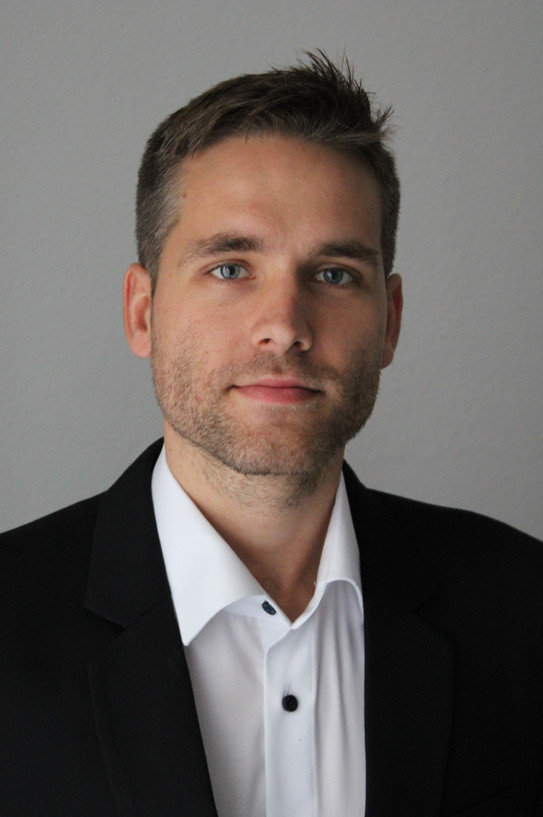
Title: Data-driven predictive control using multi-step predictors: Are state space models complicating safe data-driven designs?
Bio:
Johannes Köhler received his Master degree in Engineering Cybernetics from the University of Stuttgart, Germany, in 2017. In 2021, he obtained a Ph.D. in mechanical engineering, also from the University of Stuttgart, Germany, for which he received the 2021 European Systems & Control Ph.D. award. He is currently a postdoctoral researcher at the Institute for Dynamic Systems and Control (IDSC) at ETH Zürich. His research interests are in the area of model predictive control, control and estimation for nonlinear uncertain systems, and data-driven control.
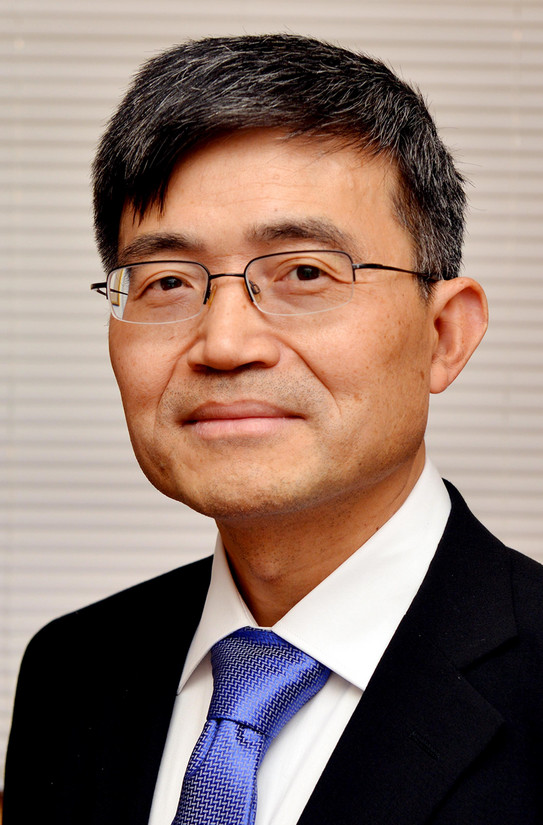
Title: Learning-Based Control for Complex Dynamic Systems
Bio: Zhong-Ping JIANG received the M.Sc. degree in statistics from the University of Paris XI, France, in 1989, and the Ph.D. degree in automatic control and mathematics from the Ecole des Mines de Paris (now, called ParisTech-Mines), France, in 1993, under the direction of Prof. Laurent Praly. Currently, he is a Professor of Electrical and Computer Engineering at the Tandon School of Engineering, New York University. His main research interests include stability theory, robust/adaptive/distributed nonlinear control, robust adaptive dynamic programming, reinforcement learning and their applications to information, mechanical and biological systems. In these fields, he has written six books and is the author/co-author of over 500 peer-reviewed journal and conference papers. Prof. Jiang is a recipient of the prestigious Queen Elizabeth II Fellowship Award from the Australian Research Council, CAREER Award from the U.S. National Science Foundation, JSPS Invitation Fellowship from the Japan Society for the Promotion of Science, Distinguished Overseas Chinese Scholar Award from the NSF of China, and several best paper awards. He has served as Deputy Editor-in-Chief, Senior Editor and Associate Editor for numerous journals. Prof. Jiang is a Fellow of the IEEE, IFAC, CAA and AAIA, a foreign member of the Academia Europaea (Academy of Europe), and is among the Clarivate Analytics Highly Cited Researchers. In 2022, he received the Excellence in Research Award from the NYU Tandon School of Engineering.

Title: Data-driven analysis and control of continuous-time systems with polynomial orthogonal bases
Bio: P. Rapisarda received his Ph.D. degree at the Department of Mathematics, University of Groningen, The Netherlands. He has held lecturing position at the University of Trieste, Italy; and at the University of Maastricht, The Netherlands. He is currently Professor in Control Theory at the School of Electronics and Computer Science of the University of Southampton, United Kingdom. His research interests include data-driven simulation and control, system identification, multidimensional systems, model reduction. He was associate editor of the IEEE Transactions on Automatic Control (2017-2022) and of Systems and Control Letters (2004-16). He is associate editor of Multidimensional Systems and Signal Processing from 2012, and of the IMA Journal of Mathematical Control and Information since 2016.

Title: Kernel-based models for system analysis via incremental dissipativity properties
Bio: Henk van Waarde is an assistant professor in the Bernoulli Institute for Mathematics, Computer Science and Artificial Intelligence at the University of Groningen in The Netherlands. During 2020-2021 he was a postdoctoral researcher, first at the University of Cambridge, UK, and later at ETH Zürich, Switzerland. He obtained the master degree summa cum laude and Ph.D. degree cum laude in Applied Mathematics from the University of Groningen in 2016 and 2020, respectively. He was also a visiting researcher at the University of Washington, Seattle in 2019-2020. His research interests include data-driven control, system identification and identifiability, networks of dynamical systems, and robust and optimal control. He was a recipient of the 2021 IEEE Control Systems Letters Outstanding Paper Award and the 2021 EECI PhD Thesis Award.
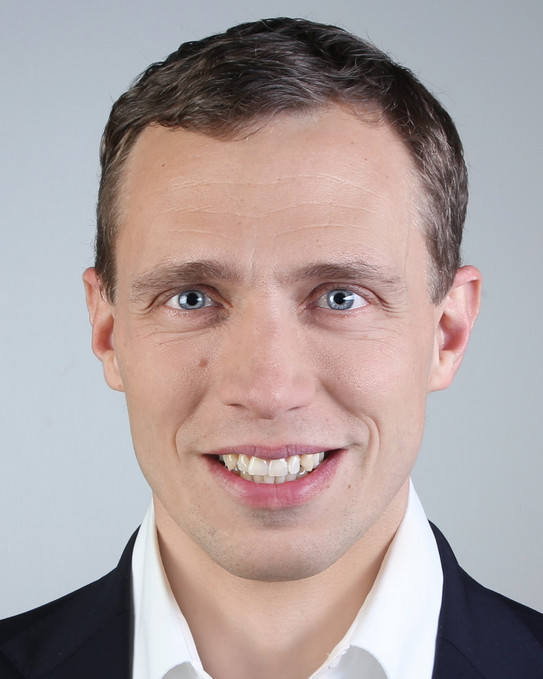
Title: Predictive control in the Koopman framework: finite-data error bounds and reprojection
Bio: Karl Worthmann received his Ph.D. degree in mathematics from the University of Bayreuth, Germany, in 2012. 2014 he became assistant professor for ''Differential Equations'' at Technische Universität Ilmenau (TU Ilmenau), Germany. 2019 he was promoted to full professor after receiving the Heisenberg-professorship ''Optimization-based Control'' by the German Research Foundation. He was recipient of the Ph.D. Award from the City of Bayreuth, Germany, and stipend of the German National Academic Foundation. 2013 he has been appointed Junior Fellow of the Society of Applied Mathematics and Mechanics (GAMM), where he served as speaker in 2014 and 2015. Karl Worthmann’s current research interests include systems and control theory with a particular focus on nonlinear model predictive control, stability analysis, and data-driven control.

